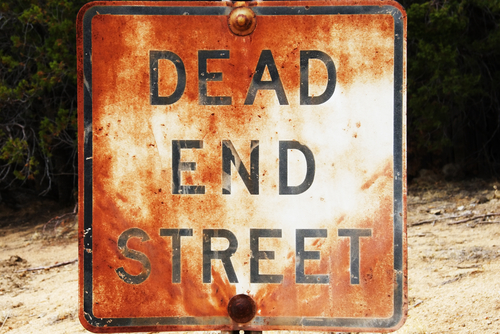The media has been in a tizzy these past few days over some remarks made by Pope Francis on an airplane flight back from a trip to Brazil:
“If someone is gay and he searches for the Lord and has good will, who am I to judge?” Francis told reporters, speaking in Italian but using the English word “gay.”
Judging by the rapturous response from some quarters, one might think that these few mildly conciliatory, off-the-cuff sentences had wiped away centuries of dogmatically entrenched homophobia. Andrew Sullivan’s reaction was illustrative:
What’s so striking to me is not what he said, but how he said it: the gentleness, the humor, the transparency. I find myself with tears in my eyes as I watch him. I’ve lived a long time to hear a Pope speak like that – with gentleness and openness, reasserting established dogma with sudden, sweeping exceptions that aren’t quite exceptions – except they sure sound like them.
What this teary-eyed praise elides is that this isn’t actually a change to any church policy. As far as I’m aware, it’s always been the Vatican’s position that gay people can be priests so long as they’re willing to commit to a life of celibacy. (Admittedly, the previous pope seemed to endorse the idea of banning men with “deep-seated homosexual tendencies” from the seminary – but even in the most favorable light possible, these remarks would merely be a reversion to what the policy was before then.)
The pope notably didn’t say that same-sex attraction isn’t a disorder, that homosexual sex isn’t a sin, or that the church should or would cease its efforts to deny civil rights like marriage to gay and lesbian couples. He also didn’t disavow his own past remarks calling marriage equality “a move by the father of lies“. All those cruel teachings, which have caused such vast harm to gay people both Catholic and non-Catholic, stand unaltered.
So why did these casual remarks get such an enthusiastic reception? Of course, part of the reason is that there’s a man-bites-dog element to this: against a background of centuries of dogmatic hostility towards homosexuality and gay people, any statement which seems even slightly conciliatory is considered newsworthy.
But I think a deeper reason is that a lot of people want the church to change its ways. In an increasingly tolerant and accepting world, the church’s unbending opposition to gay rights is an embarrassment. Many people who still belong to the church are undoubtedly ashamed of being associated with this bigotry; others are just embarrassed on the church’s behalf. They’re rooting for the Vatican to reconsider, and they’re eager to seize on even the flimsiest scrap of evidence suggesting that it will. (A piece of evidence supporting this hypothesis is that, during the same flight, Pope Francis also firmly said that women will never be allowed to become priests – his exact words were “the church has spoken and said no… that door is closed“. Those remarks didn’t get nearly as much press.)
As I’ve said before, I think this impulse comes from a good place. I understand the motivations of people who want the Catholic church to join the modern world. But as I said on that past occasion, the church isn’t a democracy and has no obligation to change with the times. Moreover, like most religions, it regards adherence to its own past errors as a sacred duty.
So, for those people who are hoping for a change that may never come, for those who eagerly leap on any remark from a church official that suggests even a slight thawing of orthodoxy, I ask you: Why strain at these gnats when secular people have been in the right all along? You’ll never see a headline like “Leader of Atheist Group Expresses Tolerance of Gay People” – that story would never need to be written. The Catholic church missed the boat on this; like many other religions, they’re being left behind by their own choice. Why not accept it and move ahead with the rest of us, rather than hanging back in the vain hope that they’ll finally come from behind and catch up?
Image credit: Shutterstock
